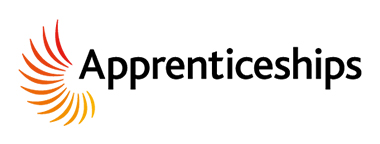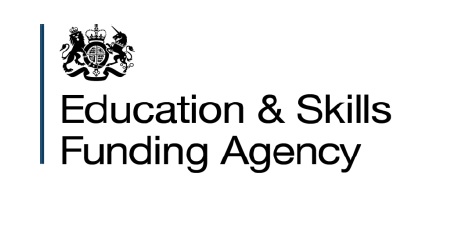Coaching Professional Apprenticeship
Level 5
Step into the rewarding world of coaching
This profession spans various sectors, including private, public, and third-sector organizations, with increasing demand for professionalized coaching in diverse fields. The role involves empowering individuals and teams through non-directive leadership, emphasizing deep listening and reflective questioning.
Coaching is deemed essential for navigating dynamic environments, fostering self-belief, curiosity, and self-awareness. Effective coaching focuses on the future, unlocking potential, facilitating change, and enhancing business improvement. Key aspects include self-understanding, commitment to development, contract management, relationship building, insight, outcome orientation, and evaluation.

Key Information
Duration
14 month programme followed by a 3-month End Point Assessment phase.
Funding options.
If you pay into the apprenticeship levy this is 100% funded at £5,000.
Or
a maximum £250 (5% contribution) if you are a non-levy employer.
Knowledge
Learning and Reflective Practice
Theories like Kolb, Gibbs, and Schon, along with foundational psychology and neuroscience, including linguistic interpretation and application.
Emotional and Social Intelligence
Understanding theories like Goleman and Salovey & Mayer, and their application to self-awareness.
Diversity, Bias, and Human Values
Covering diversity, bias theory, personality types, and human values' impact on behaviour. Includes Maslow's Hierarchy, motivational theory, and Herzberg.
Coaching Contracting and Models
Emphasizing the importance of coaching contracting, re-contracting, and models for effective coaching.
Organisational Culture and Leadership
Understanding theories on organizational culture, values, and leadership styles, and their impact on individuals and behaviour.
Coaching Protocols and Conduct
Coaching theory, including maintaining good practice protocols, a code of conduct, and principles like "unconditional positive regard" and non-directiveness.
Communication and Relationship Management
Covering communication methods, listening skills, relationship management theories like transactional analysis, power dynamics, and stakeholder management.
Increasing Self-awareness
Theories like the Johari Window, the journey from unconscious incompetence to unconscious competence, and types of feedback.
Evaluation and Value Delivery
Theories on return on investment and delivering value through coaching.
Coaching, Mentoring, and Related Practices:
Understanding the differences and similarities between coaching, mentoring, training, counselling, and consulting.
Legislation and Professional Ethics
Awareness of relevant legislation (e.g., Data Protection Act, safeguarding) and adherence to coaching competencies and codes of ethics from professional bodies.
Coaching Models and Techniques
Knowledge of various coaching models, psychological approaches, and techniques, including Whitmore's GROW model, Kline's Thinking Environment, Gestalt, NLP, cognitive-behavioural coaching, positive psychology, metaphor, and skills/performance coaching. Includes goal-setting methods like SMART goals and alignment of personal and organizational goals.
?
Skills
Effective Time Management
Demonstrates proficiency in scheduling coaching sessions, resolving conflicting priorities, and ensuring ample time for record-keeping and role-related activities.
Goal Setting and Progress Monitoring
Collaborates with coaching recipients to establish clear goals using visualization techniques, validates achievability, records outcome-focused action plans, and monitors progress towards objectives.
Clear Communication Skills
Effectively communicates the coaching process, roles, responsibilities (including boundaries and confidentiality), and articulates the benefits of coaching within the context of recipients.
Stakeholder Contracting and Ethical Standards
Establishes contracts with relevant stakeholders, considering logistics, coach and recipient preferences, system dynamics, goal setting, ethical standards, confidentiality, and adherence to relevant legislation, policies, and procedures.
Effective Stakeholder Management
Manages relationships with challenging and senior stakeholders, focusing on their agenda and desired outcomes throughout the coaching process.
Rapport Building and Maintenance
Builds and sustains rapport and trust, recognizing the values and emotional states of recipients, validating their self-understanding, addressing challenges in coaching relationships, and promoting non-dependence on the coach.
Constructive Feedback Delivery
Delivers feedback in a useful, non-judgmental, and meaningful style to coaching recipients.
Identification of Cognitive Patterns
Identifies patterns of thinking, limiting/enabling beliefs, and actions within coaching recipients.
Effective Questioning Techniques
Utilizes questioning techniques to enhance self-awareness in coaching recipients, employing open questions and addressing challenging areas.
Customized Coaching Models
Develops a coherent coaching model using established tools and techniques tailored to the context of recipients.
Emotional Intelligence in Coaching
Demonstrates emotional intelligence, including empathy, genuine support, and adaptation of language and behaviour in response to the whole person of coaching recipients.
Application of Advanced Coaching Concepts
Applies coaching theories, models, tools, techniques, and ideas beyond core communication skills to facilitate insight and learning.
Awareness and Management of Energy Shifts
Identifies energy shifts within coaching, facilitates their discussion, and effectively addresses and manages them.
Inclusive Coaching Practice
Manages and celebrates diversity in coaching practice, incorporating diversity and inclusion into professional conduct.
Self-awareness and Practice Management
Demonstrates awareness of personal values, beliefs, and behaviours, recognizing their impact on practice and leveraging self-awareness to enhance effectiveness in meeting coaching objectives and sponsor requirements.
Behaviours
Commitment to Personal Growth
Devoted to self-development through activities like self-reflection, gathering feedback on practice effectiveness, creating personal development plans, and participating in coach supervision.
Self-awareness and Well-being
Demonstrates self-awareness regarding personal behaviors, values, beliefs, and attitudes, actively managing well-being, resilience, and mental capacity.
Advocate for Coaching Mindset
Serves as an advocate for embracing a coaching mindset and promoting a positive approach to personal development.
Spontaneity, Openness, and Trust
Embraces spontaneity, openness, and flexibility, fostering an atmosphere of respect and building trust in coaching relationships.
Who is it the Coaching Professional Apprenticeship (Level 5) suitable for?
- Individuals passionate about helping others and so want to pursue a career in coaching
- Those already working in similar roles such as counselling, HR or teaching who are looking to specialise or enhance their skillset
- Leaders or managers looking to develop their coaching skills to better mentor their teams
Find the full qualification specifications here


